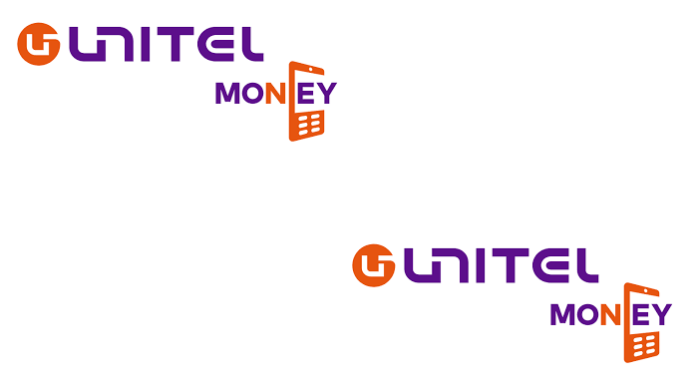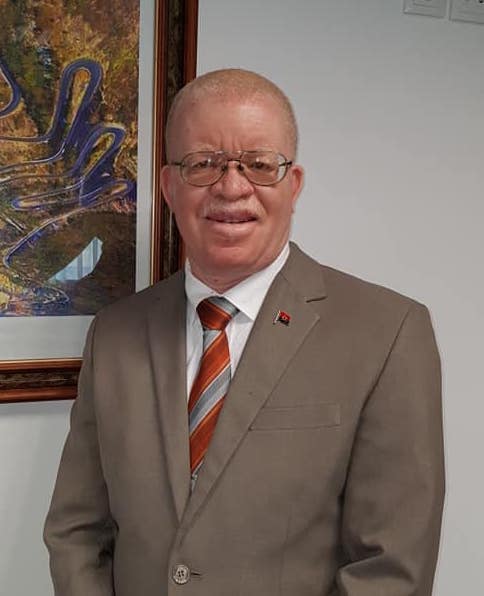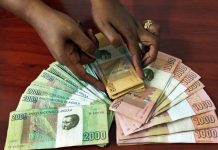Halfway through the vacation, I received a friendly invitation from Huawei – UNITEL to participate online in the launch of the “mobile money” services (cash via cell phone, in free translation) that resulted from the partnership between the two companies. Huawei will provide a flexible technological solution, suited to our reality and easy to be handled by users and agents, and UNITEL will make available its formidable telecommunication coverage network, the largest in the country.

To my great regret, I could not accept the invitation – I had already planned an excursion to the east of the province of Huíla where I was, namely in my hometown of Kuvangu. But I expressed to the nice lady who sent the invitation my enormous satisfaction for this achievement and promised that as soon as possible I would go there and see how the system works.
My enthusiasm for the subject has several reasons, all to do with my professional experiences: in 2015, when I was Director of Institutional Communication and Press at MINARS, and in the framework of the first steps of non-contributory cash transfers, I was sent to take a month-long training course in Cape Town on the subject. I was, at that time, a staunch supporter of the thesis that had been instilled in me at the Canadian university where I graduated in International Rural Development Planning, that you should never give money to the supported communities. “Before giving the hook and teaching how to fish than giving the fish”, it was said. So the then new approach of giving a monthly amount to beneficiary families made a lot of confusion in my head. I took the course, understood the concept and there I chose the specialty of “financial inclusion”.
The second experience has to do with my participation as Secretary of State for Social Communication in the design of the Kwenda Project. One of the components being the quarterly delivery of 8.400 Kzs to the most vulnerable families (in the most remote areas), getting this money is (was) a real workhorse. A good number of municipalities do not even have a bank branch; others only have one – the BPC – which works(va) with many deficiencies. I remember that, in 2019, I went on a Polio vaccination service mission once to Chipindo/Huíla and once to Chitembo/Bié and we had to transport the huge amounts of cash needed to pay the personnel and logistics of the campaign, with all the risks that entailed.
In solving these logistical problems by the Kwenda Project, the idea arose of, similarly to what happens in other countries, including here in SADC, to resort to the concept of “mobile money”. For this, the idea began to be discussed with UNITEL. Here it is worth paying a heartfelt tribute to the late Dr. Eunice de Carvalho who, once contacted, became an unconditional enthusiast of the project. His support, which was more related to the company's social responsibility than to a new area of profit-making – which it turns out to be – and his unwavering faith and commitment to the most disadvantaged were fundamental for UNITEL not to give up before the enormous technical and technological challenges facing the project. To the point that, even after his unfortunate disappearance, the strength of his memory continued to be a driving force for those who stayed to touch him forward…
It is precisely in the solution of a simple but efficient technological solution, which could be used without much training, that Huawei emerged in the project. With the experience of other countries, it has effectively made it possible for families benefiting from the Kwenda Project to receive their cash transfer on the horizon, simply by having a UNITEL number and living close to a UNITEL agent, be it a shop or a “ mamadu”.
The enormous advantages of this financial system were in my head as I traveled through the municipalities in eastern Huíla: Quipungo, Matala, Jamba, Kuvangu… and in every village I passed, I searched the streets and in my memory for the existence of bank branches: Quipungo has one , such as Jamba and Kuvangu; only Matala has two. These agencies either don't have money, or they don't have a system, or the workers went away to Lubango… the multicaixa forget, they never have money and when they do, it's those floods, especially at the end of the month. In other words, the financial system works very poorly
That's what “mobile money” can solve. For now, it happens outside the banks. Two more players enter the financial system of the municipality and the communities: UNITEL stores (which are also few, it is true) and corner shop traders (aka “mamadus”), these in large numbers and which, in fact, already they provide these services without paying a tax Kwanza to the State. That, and the near lack of bureaucracy, is what, I'm sure, will make the real difference. And in this, Huawei was visionary. The app you presented is so easy to use that it requires minimal training.
The impact of this service on the municipal and community economy is enormous. First, it will be easier and faster to send money from capital cities to municipalities and communes, which means there will be more money available there to lubricate the economy. The money in these locations is really always live and is very scarce, which affects small producers and local businesses. Second, it will enable more or less large transactions between local economic agents in a quick, efficient and secure way. Gone are the days when the Secretary of State had to load his jeep with cash boxes to pay the expenses of a campaign in a faraway location. Likewise, families benefiting from State social action can receive it in cash. Even food aid can be made available in this way, eliminating costly and time-consuming logistics, and enabling beneficiaries to purchase the type of quantity of food they consume best in the local market, injecting money into the local economy in the process. These three are financial inclusion factors. There is another aspect of not negligible importance that has to do with the non-exit of the monetary mass from the official circuit: by circulating more digitally than physically, the money does not leave the control of the national financial system. Which will eliminate one of the biggest problems you've been facing in recent years.
It is for these and other reasons that I was particularly excited when mobile financial services took off. Good wishes to UNITEL and Huawei, and I hope that the services will expand as quickly as possible to all corners of the country. I encourage and hope that social services, commercial, small industries and even the Ministry of Finance – with regard to payments to civil servants and pensioners – will not hesitate to use this service, in order to enhance it and thus bring it closer to the disadvantaged citizens, and beyond, the benefits of formal financial services.

Article written by Celso Malavoloneke, published on MenosFios with the authorization of his press office.







